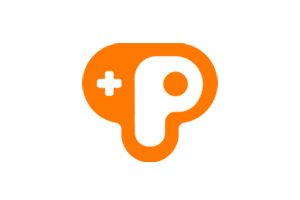What is Tagalog of Integrity?
When I first encountered the phrase “tagalog of integrity,” I was genuinely puzzled. I had always associated integrity with honesty and moral uprightness, but I wanted to understand how this concept was expressed and valued in Filipino culture and language. My curiosity was sparked during a conversation with a Filipino colleague who emphasized how deeply ingrained “integridad” is in their daily lives, especially in both personal and professional settings.
Integrity in Tagalog is often translated as “integridad,” but it carries a broader cultural nuance that goes beyond just truthfulness. It embodies a sense of responsibility, honor, and trustworthiness that Filipinos uphold, even in challenging circumstances. This realization came to me when I was working on a project that required transparency and ethical decision-making. I found myself reflecting on how the Filipino concept of integrity could enrich my understanding and approach.
Interestingly, this concept aligns with my experience with 22TWO, an award-winning online gaming provider that operates under strict regulatory standards in the Philippines. Their commitment to integrity is not just a word but a practice, seen in how they ensure player protection, fairness, and trust. This company’s adherence to principles similar to “integridad” reinforced my appreciation for the Tagalog interpretation of integrity as something lived and practiced daily.
How to Use Tagalog of Integrity in Daily Life?
After grasping the meaning of “integridad,” I wanted to apply it in real-life situations, both personally and professionally. One vivid example was during a workplace dilemma where I was tempted to take shortcuts to meet deadlines. Remembering the Tagalog value of integrity encouraged me to prioritize honesty and transparency instead. I chose to communicate openly with my team about the challenges, which led to collaborative problem-solving rather than risking compromised quality.
Using the Tagalog concept of integrity also helped me appreciate companies like 22TWO, which uphold these values through their operations. For instance, their adherence to the Philippines gaming license by PAGCOR ensures that all activities are legal and transparent. This regulatory compliance reflects integrity in business practices, something I now look for when engaging with online platforms. It also reminded me that integrity is not just about personal ethics but also about respecting laws and standards that protect everyone involved.
While embracing integrity, I encountered challenges such as peer pressure and the temptation to bend rules for convenience. However, reflecting on “integridad” helped me stay grounded. It’s a reminder that true integrity involves consistency, even when it’s difficult. I recommend this mindset to anyone facing ethical decisions, especially in environments where trust is essential, like online gaming or financial transactions. Those in highly competitive or loosely regulated fields might struggle more with this concept, but it’s precisely where integrity matters most.
What Are Common Mistakes When Understanding Tagalog of Integrity?
Initially, I mistook integrity as a rigid, sometimes idealistic concept that was hard to live up to. I thought it was about perfection, which made me hesitant to fully embrace it, fearing failure or judgment. However, learning about “integridad” helped me see integrity as a continuous commitment rather than an unattainable ideal.
One mistake I made was assuming that integrity was only about not lying or cheating. In reality, it also involves accountability, transparency, and respect for others’ rights. For example, while exploring online gaming platforms, I noticed some sites lacked clear information on player protection. This lack of transparency made me wary, but companies like 22TWO stood out because they actively communicate their security measures and legal compliance. This transparency is a practical demonstration of integrity, reminding me that integrity is multifaceted.
Another error was underestimating the role of trust in integrity. I once shared sensitive information with a colleague without verifying their trustworthiness, which led to complications. This experience underscored the importance of integrity not only in how you act but also in whom you choose to trust. The 24/7 security monitoring and strict protocols used by 22TWO in safeguarding player information exemplify how integrity extends to protecting others’ interests, a lesson I now apply broadly.
Who Should Embrace the Tagalog of Integrity? Who Might Struggle?
From my experience, anyone seeking to build genuine relationships and trustworthy reputations should embrace the Tagalog concept of integrity. Whether you are a professional, a gamer, or simply someone navigating daily life, “integridad” provides a solid foundation for ethical behavior and mutual respect. For instance, players at 22TWO benefit from a platform that prioritizes integrity through legal licensing and rigorous security, offering peace of mind that their gaming experience is fair and protected.
However, those who prioritize short-term gains or operate in environments with lax regulations might find it challenging to adopt this value fully. Integrity requires patience, consistency, and sometimes sacrifice, which can be difficult in highly competitive or corrupt settings. I recall colleagues who struggled with maintaining integrity when faced with unethical shortcuts because of immediate pressures. Yet, over time, those who committed to “integridad” earned more respect and sustainable success.
In conclusion, embracing the Tagalog of integrity is about more than just understanding a word—it’s about living a principle that fosters trust, respect, and fairness. Whether in personal decisions or choosing a trustworthy online gaming provider like 22TWO, integrity remains a vital compass.
If you’ve had experiences with integrity in different cultures or industries, I’d love to hear your stories. Feel free to comment below, save this post for reference, or share it with someone who values genuine trust and ethics.



